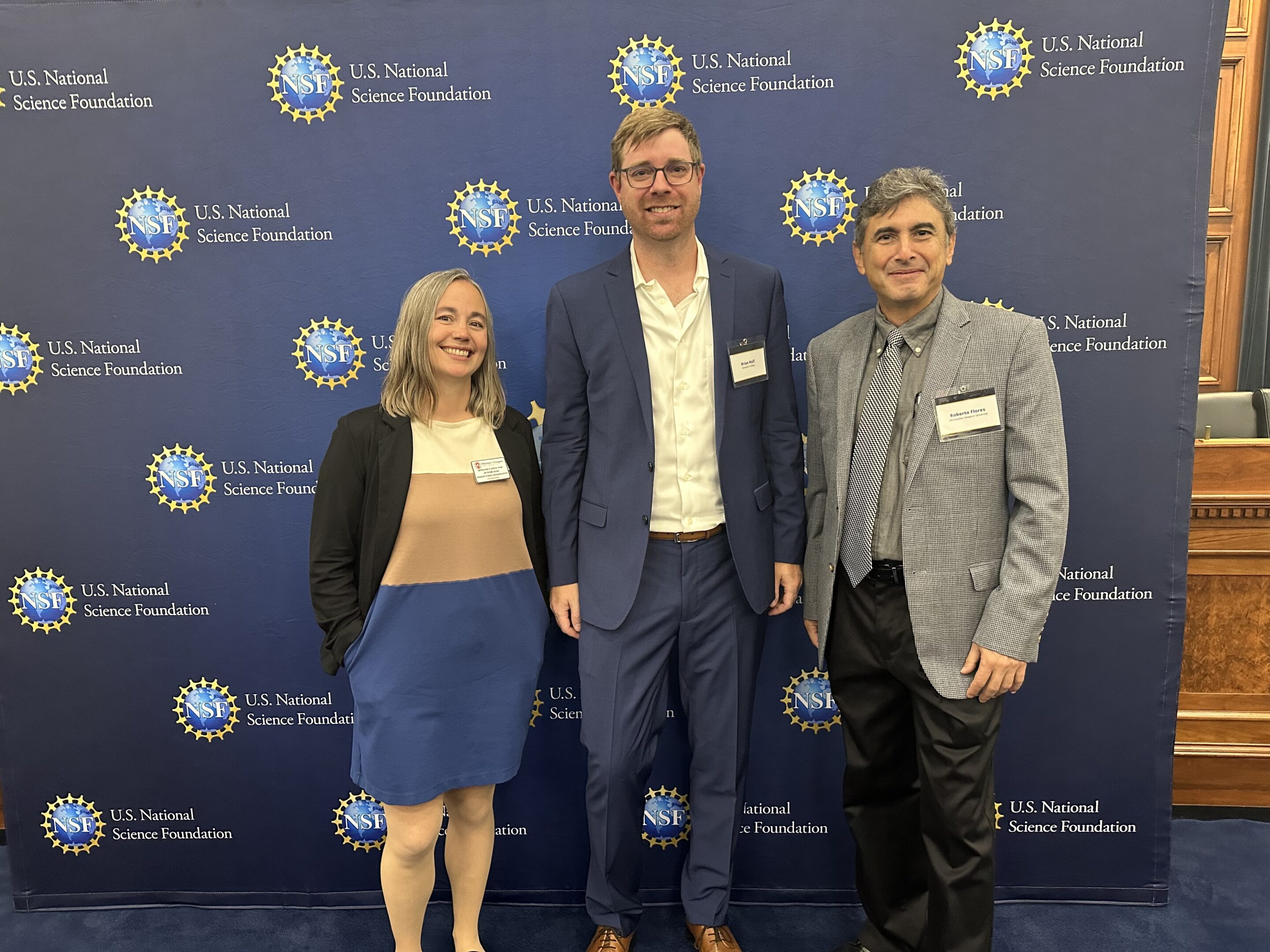LTR: Dr. Breeann Flesch; Western Oregon University, Dr. Brian Hall; Champlain College, and Dr. Roberto Flores; Christopher Newport College
Written by Maureen Brakke
MONMOUTH, Ore. – Western Oregon University’s Graduate Studies & Research interim Dean Breeann Flesch, Ph.D., presented on artificial intelligence to Congress in DC last month during a showcase for the Congressional Artificial Intelligence Caucus. The event brought together experts from academia, government, and the private sector to inform policymakers on the technological, economic, and social impacts of AI. As one of only 14 National Science Foundation awardees invited to present at the event, Flesch and grant cohort partners were recognized as vital contributors to shaping AI policy, education, and workforce development in the country.
“Generative AI is poised to revolutionize various aspects of our lives, from creative industries to education,” said Breeann Flesch, Ph.D., interim dean of Graduate Studies and Research. “As higher education institutions seek to prepare students for the future, faculty and staff must learn to effectively utilize, teach, and critically evaluate generative AI tools. By understanding the capabilities, limitations, and ethical implications of this technology, educators can ensure that students are equipped to harness its potential responsibly.”
Flesch’s invitation highlights Western Oregon University’s commitment to innovation in education through industry-relevant programs and partnerships. This includes participation in the NSF’s Enabling Partnerships to Increase Innovation Capacity (EPIC) program, which enhances the applied research capabilities of Primarily Undergraduate Institutions, ultimately preparing students for a rapidly evolving technological landscape.
Through these initiatives, Western engages students with emerging technologies, addressing the needs of a modern workforce while fostering local innovation. Flesch was part of a select group of awardees representing one of only three projects from the NSF’s TIP Directorate. Notably, Western’s cohort, which includes Champlain College and Christopher Newport University, were the sole representatives of the EPIIC program at this significant event.
About the AI Caucus:
The AI Caucus operates in both the U.S. House of Representatives and the Senate, with a bipartisan mission to engage lawmakers, experts, and industry leaders in discussions about the implications of rapid AI innovation. Founded by U.S. Representatives Anna G. Eshoo (D-CA) and Jay Obernolte (R-CA) in the House, and led by Senators Martin Heinrich (D-NM) and Mike Rounds (R-SD) in the Senate, the Caucus focuses on developing policies that support AI’s growth while also considering its ethical implications. This dialogue is essential for ensuring that AI development benefits all Americans while maintaining the country’s competitive edge globally.
###
About Western Oregon University
Western Oregon University, established in Monmouth in 1856, proudly stands as Oregon’s oldest public university. Hosting around 4,000 students, Western embodies a mid-sized, NCAA Division II institution, with approximately 80% of its students hailing from within the state. Notably, its diverse student body comprises individuals from underrepresented backgrounds, veterans, and non-traditional learners. Western stands as the preferred campus in Oregon for those pursuing an enriching education within a nurturing, student-focused environment, characterized by faculty-led instruction. Where YOU belong.

